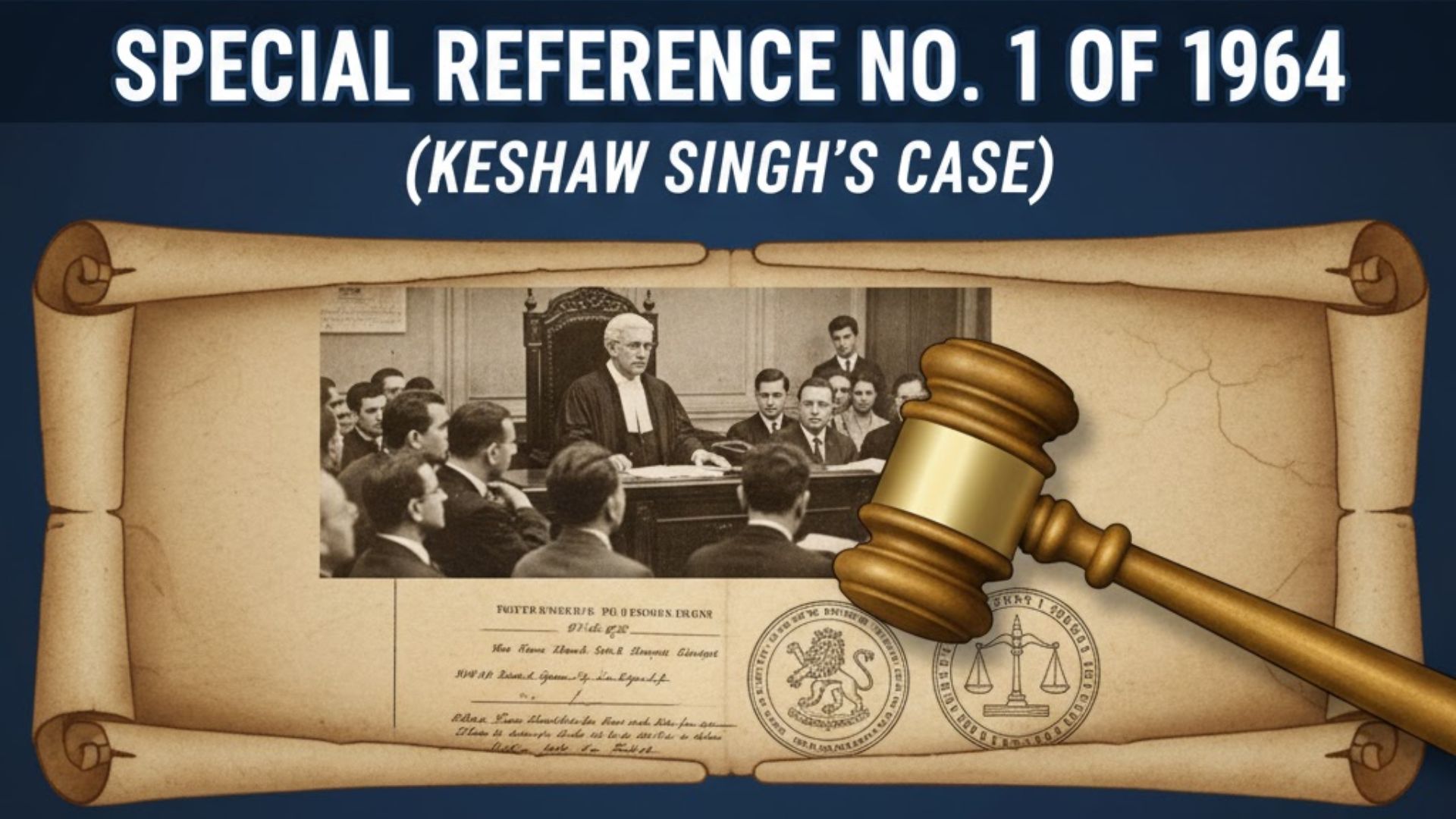
Case Summary: Special Reference No. 1 of 1964 (Keshav Singh’s Case)
Case Stats
(1964) 09 SC CK 0029
Name of the Court: Supreme Court of India
Case No: Special Reference No. 1 of 1964
Date of Decision: 30-09-1964
Bench: Full Bench
Hon'ble Judges: P. B. Gajendragadkar, C.J; N. Rajagopala Ayyangar, J; M. Hidayatullah, J; K. Subba Rao, J; K. N. Wanchoo, J; J. C. Shah, J; A. K. Sarkar, J
Final Decision: Disposed Of
[Judgment Source]
https://www.courtkutchehry.com/Judgement/Search/AdvancedV2?docid=282851
All Citations
AIR 1965 SC 745
Facts of the Case
The case arose when Keshav Singh, a resident of Gorakhpur, was reprimanded by the Uttar Pradesh Legislative Assembly for contempt of the House and breach of privilege of a member. Later the same day, the Assembly ordered his imprisonment for seven days for further contempt. Singh filed a petition before the Lucknow Bench of the Allahabad High Court challenging his detention. The High Court ordered his release on bail. The Assembly, in response, passed a resolution holding Singh, his advocate, and the two judges who granted bail, in contempt, ordering the arrest of all three. This unprecedented clash between the legislature and the judiciary prompted the President to refer constitutional questions to the Supreme Court under Article 143(1).
Law Points Raised
1) Scope of legislative privileges under Article 194(3) vis-à-vis judicial powers under Articles 32 and 226.
2) Whether a High Court can issue orders affecting proceedings of a state legislature.
3) Extent of judicial review over actions taken in exercise of legislative privilege.
4) Protection of judges and advocates from legislative action for acts done in discharge of their functions.
5) Reconciliation of separation of powers when privileges and fundamental rights conflict.
Acts / Provisions / Articles Referred
• Constitution of India — Articles 143(1), 194(3), 211, 226, 32
• Code of Criminal Procedure, 1898 — Section 491
Judgments Referred
• MSM Sharma v. Sri Krishna Sinha (1959)
• Searchlight case precedents on legislative privilege vs freedom of speech
• Precedents on Article 143 Presidential References
Obiter Dicta
The Court emphasized the need for harmonious interpretation between legislative privileges and the independence of the judiciary, stressing mutual respect and restraint between organs of the State to avoid constitutional deadlocks.
Ratio Decidendi
The Supreme Court held that while legislatures have wide privileges under Article 194(3), they are subject to the Constitution, and their actions can be reviewed if they violate fundamental constitutional provisions. High Courts can examine the legality of detention ordered under legislative privilege to ensure it is within constitutional bounds.
Final Ruling
The Court provided clarifications to prevent future conflicts: legislatures cannot penalize judges for judicial acts done within jurisdiction; advocates acting in their professional capacity are also protected. Both institutions must respect each other's constitutional functions.
Summary
This Special Reference resolved a constitutional crisis between the Uttar Pradesh Legislative Assembly and the Allahabad High Court. It affirmed that legislative privilege under Article 194(3) is not absolute and is subject to constitutional limitations. Judicial review can ensure such privileges are not exercised in a manner that undermines the rule of law or independence of the judiciary.
[Judgment Source]
https://www.courtkutchehry.com/Judgement/Search/AdvancedV2?docid=282851